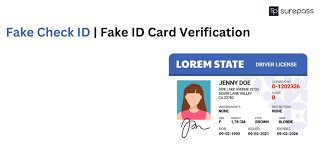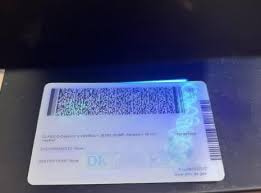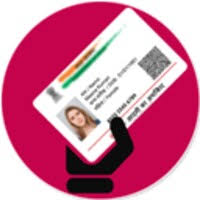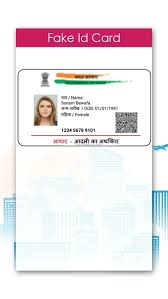What does a real Florida ID look like?
What Does a Real Florida ID Look Like?
When it comes to identifying a real Florida ID, there are several key features that help verify its authenticity. Understanding what a real Florida ID looks like is crucial, especially if you’re a resident or frequent visitor to the state. Whether you're dealing with age verification or need a government-issued ID for official purposes, it’s important to recognize the key aspects of a legitimate Florida ID.

Florida ID Overview
The Florida driver’s license or ID card has undergone multiple updates over the years to enhance its security and make it difficult to counterfeit. A real Florida ID is issued by the Florida Department of Highway Safety and Motor Vehicles (FLHSMV), and as of recent years, all licenses are created with highly advanced security features. It is issued to Florida residents for identification purposes and driving privileges, but it also serves as a key form of identification for non-drivers.
Key Features of a Real Florida ID
To answer the question, what does a real Florida ID look like?, it’s important to note several visible and technical details:
Holograms: One of the most visible security features on a real Florida ID is the presence of holographic images. These appear when the ID is tilted under light.
Microprinting: There is fine microprinting along the edges and on various parts of the ID card, often invisible to the naked eye but detectable under magnification.
Ghost Image: In addition to the main photograph, a real Florida ID includes a smaller, ghosted version of the ID holder’s picture on the card.
UV Light Features: Under ultraviolet (UV) light, specific portions of the Florida ID will light up. This is a key security feature that many counterfeit IDs lack.
Barcode and Magnetic Stripe: A real Florida ID contains a 2D barcode on the back and a magnetic stripe, both of which store important information about the ID holder.
Raised Text: Some sections of the ID, such as the cardholder’s name and date of birth, may have raised text that you can feel with your fingertips.
Color and Font: Authentic Florida IDs use specific fonts and color schemes. For example, the license number, date of birth, and expiration date are often bold and clear, easily distinguishable from other text on the card.
Florida ID vs. Fake ID
Recognizing the difference between a real Florida ID and a counterfeit one is important for businesses and law enforcement. Fake Florida IDs often lack many of the security features listed above, and the texture or overall feel of the card might also be off. With advancements in technology, it can be easier to detect fakes if you know what to look for.
Types of Florida IDs
There are two main types of Florida IDs: the standard ID card and the driver’s license. Both of these can be issued in the Real ID format, which meets federal guidelines for security.
Real ID Compliant: Since 2010, Florida has issued IDs that comply with the Real ID Act, which is a set of federal standards for identification. These IDs are necessary for activities like flying domestically or entering federal buildings. You can recognize a Real ID by the presence of a gold star in the upper right corner of the card.
Non-Real ID: Older versions of Florida IDs, or those issued to individuals without full documentation, may not meet Real ID standards. These IDs are still valid for many purposes but are not accepted for federal identification uses.
How to Spot a Fake Florida ID
Now that we know what a real Florida ID looks like, it’s important to understand how to spot a fake. Counterfeit IDs can be convincing, but there are ways to tell them apart from genuine ones. Look for the following warning signs:
Blurry Holograms: If the holographic images appear fuzzy or are missing entirely, the ID might be a fake.
Incorrect Information: Check if the format of the date of birth, license number, or other key data matches the correct format used by Florida IDs.
Poor Print Quality: Genuine Florida IDs use high-resolution printing for the photo and text. If the print looks pixelated or uneven, it’s likely not a real ID.
No UV Features: If the card does not light up under UV light, it is almost certainly fake.
How to Verify a Florida ID
If you’re still unsure about whether an ID is real, there are steps you can take to verify its authenticity:
Use an ID Scanner: ID scanners are widely available and can verify if the barcode or magnetic stripe on the card matches the printed information.
Contact the FLHSMV: If you suspect an ID might be fake, you can contact the Florida Department of Highway Safety and Motor Vehicles to check the validity of the license or ID number.
Check for Consistency: Ensure the details on the ID card match other forms of identification or official documents from the cardholder, such as a passport or utility bill.
Conclusion
Understanding what a real Florida ID looks like is essential for anyone who needs to verify identities for legal or security reasons. Whether it’s for accessing government services, boarding a flight, or purchasing age-restricted items, knowing the features of a real Florida ID helps ensure that only authentic identification is used. Pay close attention to the security features such as holograms, microprinting, and UV light indicators, and use tools like scanners for extra verification. A proper Florida ID is a valuable tool for identification and should be carefully examined whenever in doubt.
By following these guidelines, you can confidently recognize a real Florida ID and differentiate it from fake ones, ensuring compliance with state and federal regulations.
 scannable Fake Texas DL
scannable Fake Texas DL
 scannable Fake Washington DL
scannable Fake Washington DL
 scannable Fake Virginia DL
scannable Fake Virginia DL
 scannable Fake Utah DL
scannable Fake Utah DL